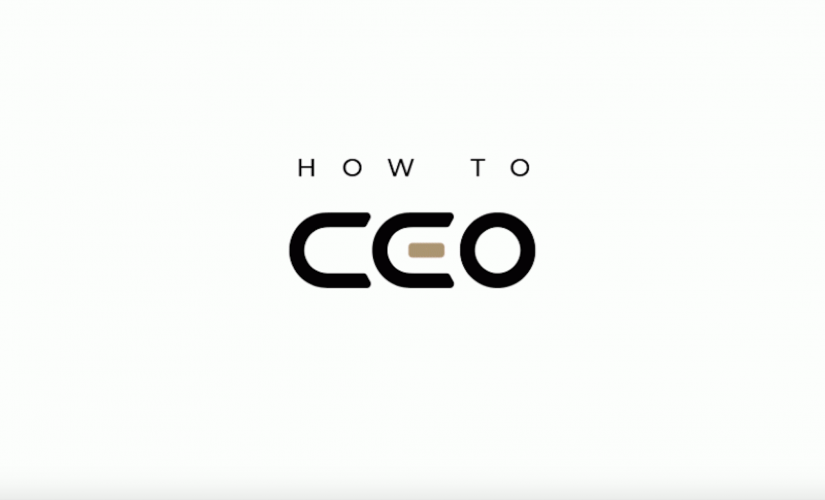How Founders and CEOs Can Raise Early Checks (With Pavel Cherkashin)

I’m excited to speak with Pavel Cherkashin in today’s episode of the How To CEO podcast!. Pavel is a co-founder and managing partner at Mindrock Capital. Pavel is also a managing partner at GVA Capital. I spoke with him about what founders and CEOs need to know about raising early checks.
When Should Founders Try Raising Early Checks?
I asked Pavel: When should a founder who’s just starting a company begin to think about trying to raise early checks, and what should they do to get ready?
Pavel thinks of a founder’s new startup as a baby. When a baby is an embryo, the parents don’t show it off to friends and family yet. The same holds true with startups.
“There’s a certain period when you don’t even know if your product is going to fly — if people really need your product or if there even is a product. Once you’re sure there’s a product, and once you know that all the binary risks are off the table and it’s now more about the risks associated with scaling, then you should go to investors.”
What Investors Want to See Before Investing
Pavel told me that although there’s a category of investors who are willing to fund ideas in early stages, the truth is that in most cases is that funding will include your friends and family at the beginning.
Institutional investors would want to first see that there’s a strong team. The team should have a product in hand, and the product should solve a particular problem for particular clients.
Pavel’s “Box” Analogy
Pavel tells me to look at it from this perspective: The ideal scenario for the investor is when the startup founder comes to an investor with a box and says, “We put $ 100 into this box. We turn the handle, and we get $ 200 out of it. Or $ 300 out of it.” Now the investor wants to put money into this box.
At first, the investor puts in $ 100, and nothing happens… And then puts in another hundred, and nothing happens… But probably in a year, when they put enough money into this box, coins will start coming out.
Steps That Show Investors That the Startup Will Be Successful
The investor never knows with certainty that this box (the startup) is going to actually work. So I asked Pavel, “what are some good signals a founder can give investors to show them that their startup will be successful?”
He told me about several steps a founder can take that can help get the attention of investors. Here’s Pavel’s rundown:
1. Friends and Family
First, he told me that there are always investors you can approach without having a strong pitch yet. Again, for example, you can first go to your friends and family.
2. Accelerators
You can also go to accelerators. Even if you don’t want to participate in the acceleration program, you can still use the application process as a way to get feedback and understanding for yourself to determine if your project is fundable.
Pavel strongly recommends that founders apply to all possible accelerators, and pitching all their family members. “If you’re scared or shy to show your project even to your close friends, something is wrong with it and you should get back to designing the product.”
3. Lawyers
The next layer is to go to service providers like lawyers. Most of the large legal firms, at least here in Silicon Valley, will give credit to pretty much any startup in their services. You can get 10K, 15K, 20K worth of credit from lawyers to set up your company, and they will hope that once you raise the funding, you’ll pay them back.
“If you can’t sell your project even to a lawyer, you shouldn’t start going through institutional investors,” Pavel told me. “This is a very good indication of where you are.”
4. Startup Programs with Large Companies
Then, you go to Google and get $ 100,000 worth of their credits, or Amazon, or Facebook, or Microsoft. All of those big companies have special programs for startups.
5. Recommendations from Other Founders Or Investors
Another very important resource for founders is other founders of successful startups who have already raised funding. “Most of the best deals that I’d invest in, come through recommendations,” Pavel said. “The recommendations could come from large corporations if you have a good deal with them, and if you’re working on some exciting business development, they will tell us.”
Recommendations can also come from other investors. Getting a recommendation from another investor is basically convincing another investor to invest. Getting a recommendation from a founder is much easier. They’ve all been in your shoes, they know how difficult it is. If they like your project, it doesn’t cost them anything to send an email.
Pavel had much more advice and tips to give new founders. He also gave me his thoughts on valuation, others who are doing great work as investors, and more. You won’t want to miss this episode.
The post How Founders and CEOs Can Raise Early Checks (With Pavel Cherkashin) appeared first on ReadWrite.
(102)